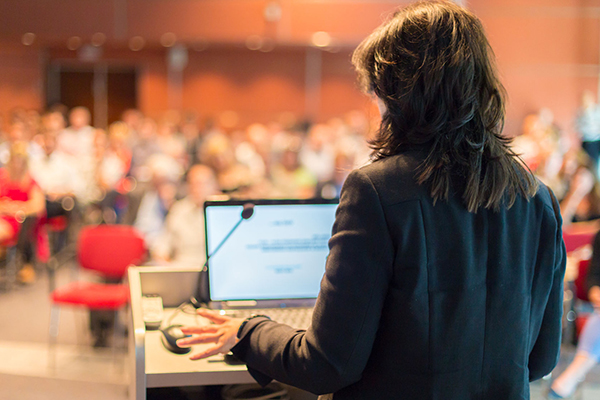By Carrie Brown McWhorter
The Alabama Baptist
Female seminarians often face subtle hostility from male classmates and an uncertain professional future, but many believe the future of the faith depends on empowering theologically trained leaders of both genders that God has called to serve.
Evangelical women should not have “to check either their gifts or their gender at the door,” wrote Southeastern Baptist Theological Seminary (SEBTS) student Amber Bowen in a blog discussion of gender and giftedness in October 2016.
“Within the Church there is one limit for women: the office of the pastor/elder. Rather than being fixated on the one limit for women in the Church, we should turn our efforts to exploring all the possibilities for women in the Church,” said Bowen, who co-founded the Society for Women in Scholarship at SEBTS in Wake Forest, North Carolina, a student group that aims to help women who are academically and theologically gifted thrive in an academic setting overwhelmingly dominated by men.
Setting limits
SEBTS, like all Southern Baptist Convention-supported seminaries, abides by the 2000 version of the Baptist Faith and Message, which among other things limits the office of pastor to men. Collectively the six seminaries’ stated mission is “to prepare God-called men and women for vocational service in Baptist churches and in other Christian ministries throughout the world through programs of spiritual development, theological studies and practical preparation in ministry.”
However, female theology students remain a minority, not only in Baptist-affiliated seminaries but also at interdenominational seminaries. The low numbers stand in stark contrast to national data that shows women in the United States outpacing men in overall graduate school enrollment for the past decade. The female student population for Beeson Divinity School at Samford University in Birmingham is currently at 19 percent.
Because Beeson is an interdenominational school, the students come from a variety of church backgrounds related to women’s roles in the church.
But even with Beeson traditionally having two females among the 17 professors, women remain in the minority among the white-male dominated faculty at most seminaries.
Norfleete Day was one of the few females in the first class at Beeson. Day sensed a calling to teach and recalled that most of the other women in her class were called to ministry outside pastoring. Those who felt called to preach encountered more resistance than the others, Day said.
Female students like Day and her classmates also lacked female mentors on the faculty. When Day returned to Beeson as an assistant professor in 1999 after earning her doctorate in New Testament at Baylor University in Waco, Texas, she became the school’s first Ph.D. holding female faculty member and the first to teach in the area of biblical studies. Not everyone was pleased. One male student she had previously taught in a Greek class refused to enroll in her New Testament class because he didn’t believe a woman should be teaching him.
“In Southern Baptist life most will accept a woman to teach in the field of missions or social work, but to have a female teaching in biblical studies or theology is most unusual,” Day said.
From the female students, Day heard gratitude.
“Many female students told me it was encouraging to them to have a woman in a ‘heavy’ area of study,” she said. “They really didn’t have those models, and many felt marginalized by their male colleagues.”
Though she is now retired, Day continues to mentor female seminarians. Some progress has been made but the subtle resistance remains, she said.
That resistance has a much greater impact than simply keeping women out of pastoral roles, according to Beeson graduate Kristen Padilla, who addressed the topic in a 2015 blog post titled “Is there enough room for women in vocational ministry?”
The failure of some Christian higher education institutions to recruit female students and the lack of jobs in teaching and ministry for those who earn advanced degrees may result in women giving up on their call to ministry. If that happens every ministry in the Church suffers, she writes.
“Because many women are being taught watered-down theology and pop-psychology tinted Scripture, we have created an environment where false teaching is growing easily and quickly,” Padilla wrote. “We should expect the same training of women as of our men. … What is the Church and the world missing out on by the Christian community failing, to some degree, to engage, encourage and train up more women for a ministry of the gospel?”
Undergraduate level
Perhaps part of the answer lies at the undergraduate level at Christian colleges like the University of Mobile (UM), where 40 percent of biblical/theological studies majors are women.
Douglas Wilson, dean of the UM School of Christian Studies, said, “We are equipping both men and women, providing them opportunities to prepare for and participate in ministry activities throughout their college careers.”
Alumnae serve as women’s ministry leaders, children’s directors, worship leaders, social workers, Bible teachers, teachers and missionaries, Wilson said. At every stage of their undergraduate education, opportunities for hands-on ministry, internships through local churches, ministry organizations, missions agencies and academic coursework are available “to equip them to develop the gifts God has entrusted to them for His glory and the good of the Church,” Wilson said.
But Noel Forlini Burt, Beeson graduate and lecturer in the religion department at Baylor, says Baptists have further to go when it comes to supporting women in their vocational ministry calling.
“It remains for me an issue of the heart,” Burt said. “Love and sensitivity must be at the center of our discussions, and we must not presume that we can hear God’s call on any person’s life better than the person herself. When women can articulate a call from God to teach, to preach and yes, to pastor, and where that call is demonstrated in tangible gifting, we should do all that we can to equip them to serve.” (BNG contributed)






Share with others: